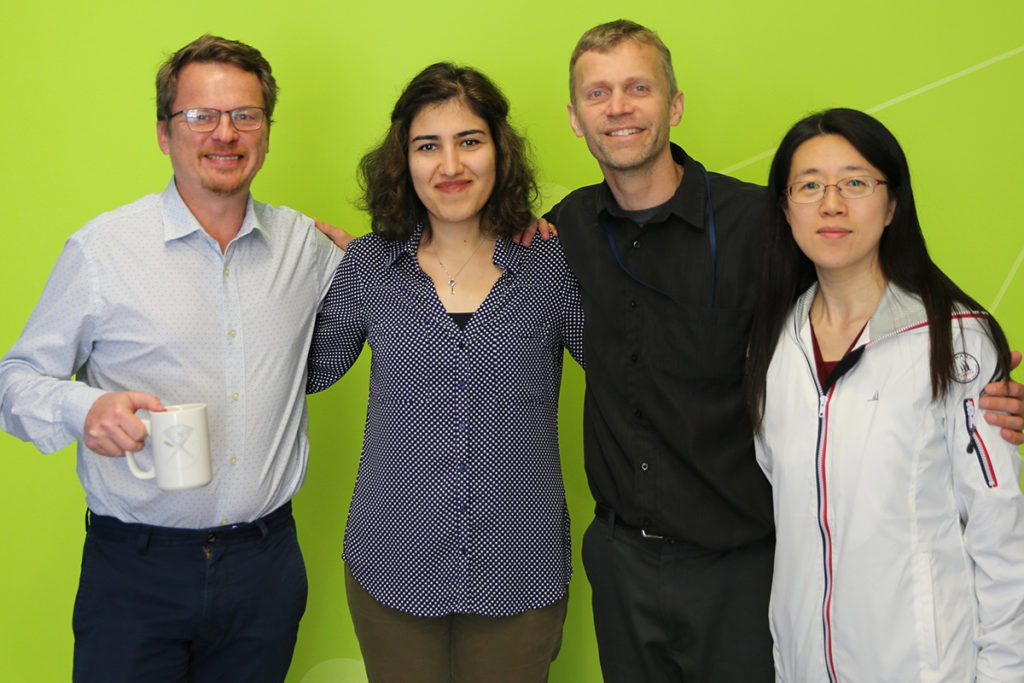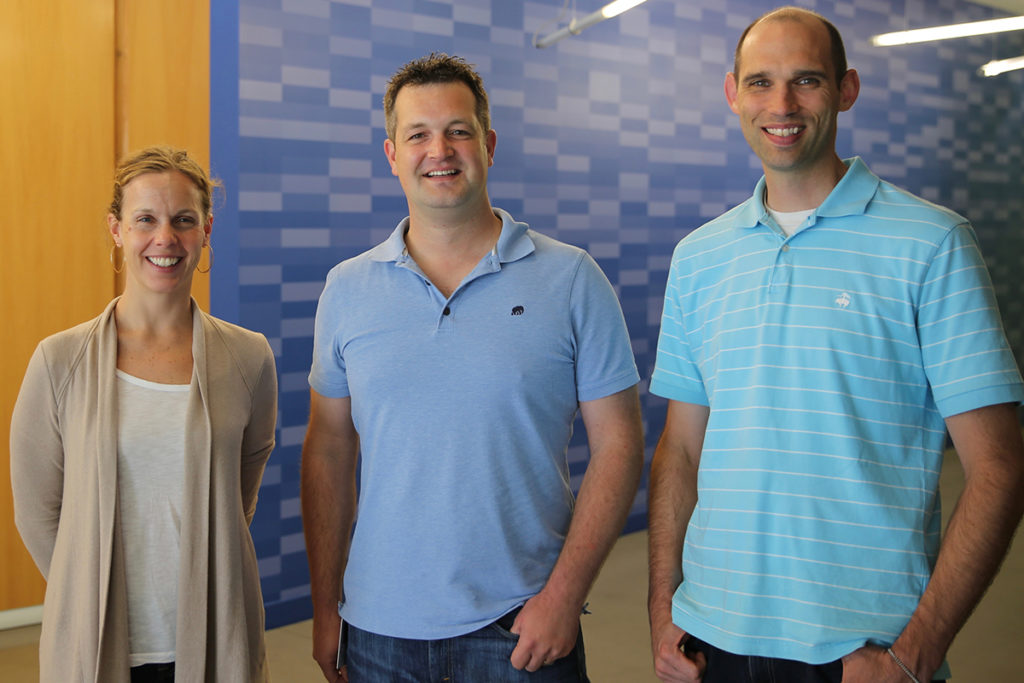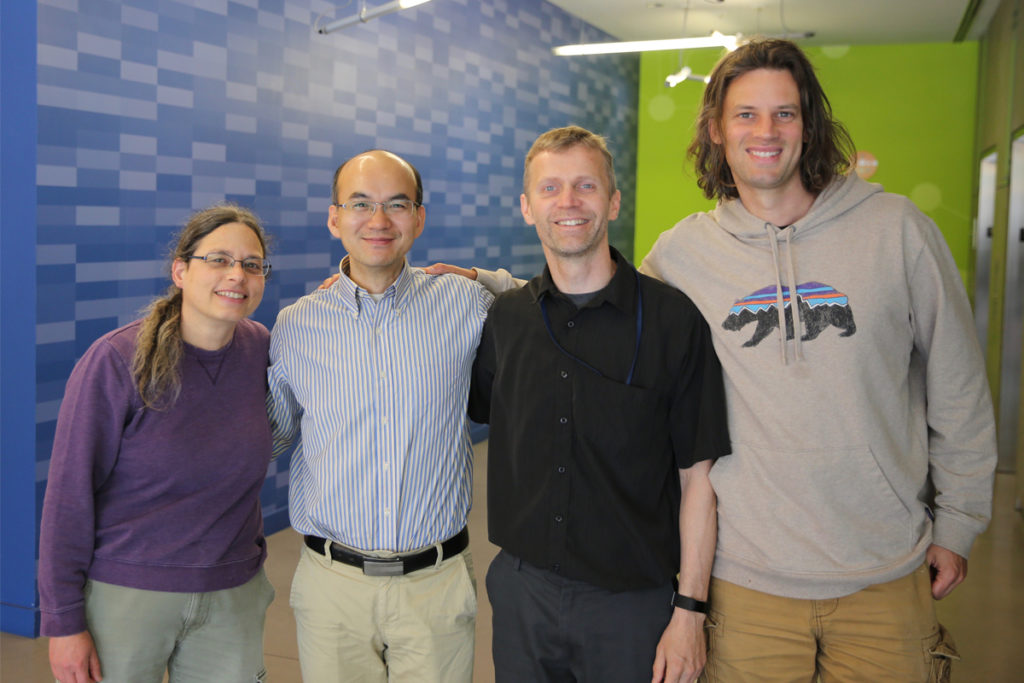‘Substantial advancements in high-mission priority areas:’ ISB’s Innovator Award Program rewards high-risk, cross-disciplinary research projects
 isbscience.org/news/2018/06/29/substantial-advancements-in-high-mission-priority-areas-isbs-innovator-award-program-rewards-high-risk-cross-disciplinary-research-projects/
isbscience.org/news/2018/06/29/substantial-advancements-in-high-mission-priority-areas-isbs-innovator-award-program-rewards-high-risk-cross-disciplinary-research-projects/The Innovator Award Program at Institute for Systems Biology is an annual internal initiative started in 2017 that aims to stimulate creativity, innovation and collaboration within ISB, to provide funding support for high-risk, high-reward projects, and to develop new technologies and discoveries that will impact the entire research organization.
“The Innovator Award Program has successfully brought researchers from across ISB’s faculty groups to work together and pushed them to take on high-risk projects that aren’t typically funded at an early stage,” said Dr. Nitin Baliga, senior vice president, director and professor at ISB. “These researchers are making substantial advancements in high-mission priority areas at ISB.”
The priority areas for 2017 included single-cell analytics, interactomics, genome editing, and big data analytics and modeling. ISB received 11 proposals, of which three were awarded.
“This program provides seed funding that allows projects to progress and then go in front of the funding organizations, offering a way to de-risk research and stimulate investment,” said Baliga. “Strategic investment has enormous value, and we’ve seen a great return in our first year.”
The three research projects selected for funding resulted in one soon-to-be-filed patent, three grant applications with more planned, three manuscripts and four new collaborations within and beyond ISB.
In a June 25 event held at ISB, 2017’s Innovator Award Program recipients delivered presentations on the status of their research.
Nearly every lab within ISB was represented by the three projects, and the lead researchers of each project gained valuable experience with grant management, budget management, grant writing and compliance.
Please read on for details about the 2017 Innovator Award Program projects.
Project title: Sequence of the COLO320 double minute chromosome and its effect on gene expression
Lead P.I.: Chris Lausted of the Hood-Price Lab
Collaborators: Dr. Neda Jabbari (Hood-Price Lab), Dr. Changting Meng (Hood-Price Lab) and Dr. Vésteinn Thorsson (Shmulevich Lab)
Outcomes: The group developed a method to detect and study episomal DNA, is planning a publication and a grant submission, and formed a partnership with the Abkowitz Lab at the University of Washington.
Project title: High-Throughput Analysis of Regulatory Interactions in Mycobacterium tuberculosis
Lead P.I.: Dr. Eliza Peterson of the Baliga Lab
Collaboratotrs: Dr. Mark Gillespie (Ranish Lab), Dr. Fred Mast (Aitchison Lab)
Outcomes: The group developed a high-throughput method to systematically explain the conditional composition of proteins at a gene’s promoter, has applied for a grant, is planning a publication, and has formed a partnership with ISB’s Ranish Lab.
Project title: Novel Technique to Monitor Single-Cell Transcriptome over Time Using Barcoding
Lead P.I.: Dr. Joseph Zhou of the Huang Lab
Collaborators: Dr. Irit Rubin (Huang Lab), Chris Lausted (Hood-Price Lab), Dr. Theo Knijnenberg (Shmulevich Lab)
Outcomes: The group developed a new single-cell technology to trace cell subpopulation dynamics, applied for a grant, has a patent pending, is planning a publication, and has formed seven separate partnerships.









